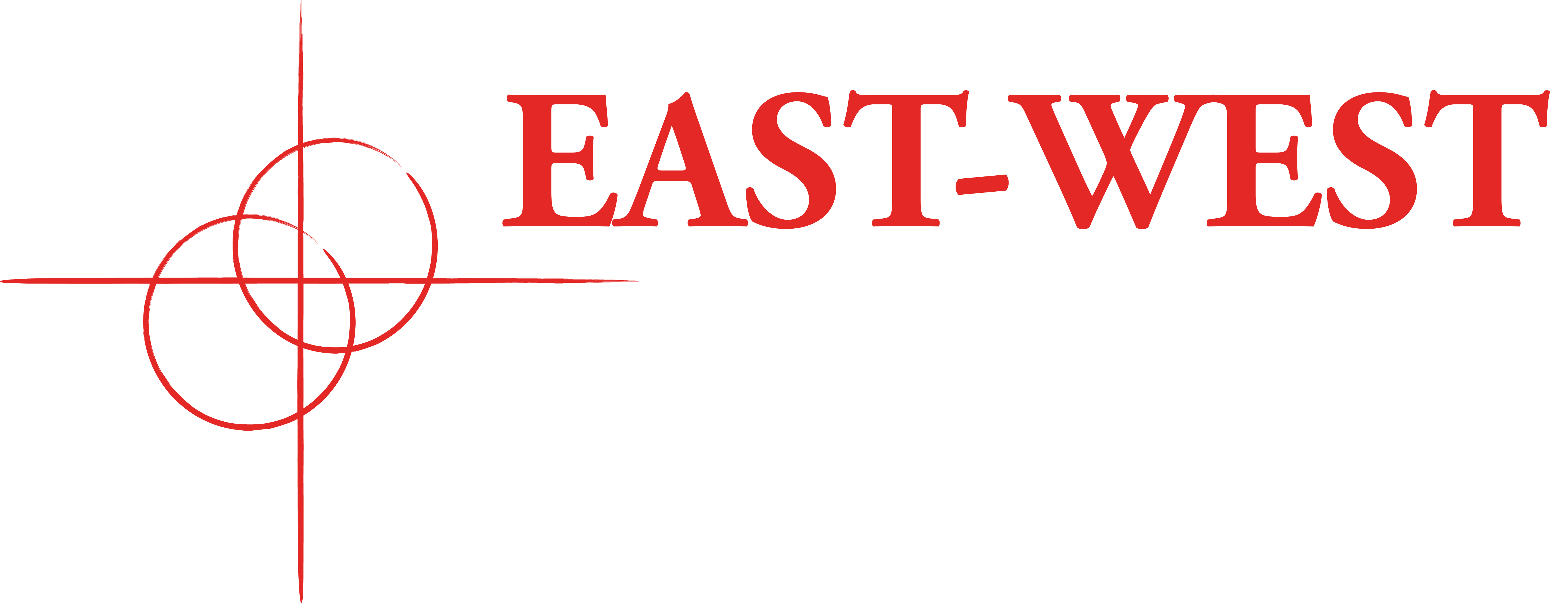EWPC 2024 Plenary Sessions
LIST OF SESSIONS (in alphabetical order / further details below)
- Trauma and Healing in Post-Arab Spring Times
- Philosophy of Trauma and World Development
- Emotional Suffering in Ancient Greek Thought
- Trauma & Healing in the Zen Buddhism of D.T. Suzuki
- Healing from the Trauma of Conditioned Existence: Classical Indian Philosophy and the Suffering of Being
- Continental Perspectives on Trauma and Healing
- Trauma and Healing in Personal and Political Relationships
Panel Organizer: Tamara Albertini, University of Hawai‘i at Mānoa
Title: Trauma and Healing in Post-Arab Spring Times
Description:
The Arab Spring, some call it unfinished, others the failed or stolen revolution. If there is one lesson to be learned from the experience, revolutions do not lead to the results protesters hope for. The current example of Tunisia shows that setbacks may hit even after introducing democracy and a new constitution. The higher the expectation, the more severe the trauma. Today, many suffer from psychological violence ranging from a sense of betrayal to a loss of self-worth and hopelessness. Others endured psychological and physical pain related to injuries, rape, health deterioration, and imprisonment. The number of displaced people in the Arab world has tripled after the revolution. Moreover, as in every social upheaval, women are particularly hard hit. Some ask, “Was it worth the trouble?” This panel examines the wounds and scars left by the Arab Spring not just at the individual level but more as an intersubjective phenomenon and at the level of systemic trauma where, to use a Habermasian concept, institutional power “colonizes” one’s personal, social, and political space.
Participants:
- Sari Nusseibeh, Professor of Philosophy, al-Quds University, Jerusalem, “What is a Homeland”
- Ashraf Mansour, Professor of Philosophy, Alexandria University, Egypt, “Social and Political Despair in the Aftermath of the Arab Spring – A Cross-Cultural Approach.”
- Tamara Albertini, Professor and Chair of Philosophy, University of Hawaii Mānoa, “The Arab City: The Trauma and Healing Written on its Walls.”
Panel Organizer: Chung-ying Cheng, University of Hawai‘i at Mānoa
Title: Philosophy of Trauma and World Development
Description:
Human history has experienced many traumas which have led to dramatic turns for good or bad and which may not involve a simple process of healing. In recent times, the corona virus pandemic has changed the way people live and think. I notice two or three main types of developments which are opposite to each other: Each suggests a background in a native philosophical or religious tradition. The panel’s point is direct and clear in facing a large unknown danger: How should a human community respond to the challenge? Is there a reason for a community to fall upon its own native tradition and philosophy? Now that the basic virus challenge has subsided, humanity faces another more serious challenge, that is, should the major civilizations of humanity combine their traditional merits in striving for a brighter human future in mutual support and peace? Or will it be that being trapped by their own traditions they cannot but become hostile and antagonistic toward each other and in turn make the world chaotic?
Participants:
- Xingzhong Yao, Professor of Philosophy, People’s University of China, “A Confucian Perspective on Coping with Traumatic Situations.”
- Li Yong, Professor of Philosophy, Wuhan University, “Family, Filial Piety, and Trauma in Confucian Ethics.”
- Chung-ying Cheng, Professor of Philosophy, University of Hawai‘i at Mānoa, “Reflections on Reality and Life Through Disasters and Toward Healing.”
Panel Organizer: Jonathan Fine, University of Hawai‘i at Mānoa
Title: Emotional Suffering in Ancient Greek Thought
Description:
“To suffer is to learn”, say many ancient Greek tragedies. But not all suffering yields insight into human life. This panel explores the ways emotions could impair or repair the lives of individuals and communities in ancient Greek thought. Ancient Greek thought — in philosophy, poetry, and medical writing — gives rich attention to emotions in general and particularly in response to catastrophic or traumatic events. It throws open questions whether grief, for example, is the best way to heal after loss; whether anger is needed to rectify injustice; or whether our emotions capture or cloud what really is valuable. This panel pursues these and other questions by engaging a number of thinkers, most likely to include Homer, Aristotle, the Stoics, and Cynics. Panelists and participants are invited to consider how some ancient Greek thinkers made sense of their emotional lives and their potential insights for navigating emotional trauma and healing today.
Participants:
- Jessica Moss, Professor of Philosophy, New York University, “Epistemic Emotions in Plato.”
- Marta Jimenez, Associate Professor of Philosophy, Emory University, “Aristotle on the Emotions Concerning Other People’s Fortune.”
- Jonathan Fine, Assistant Professor, University of Hawai‘i at Mānoa, “Varieties of Admiration.”
Panel Organizer: Steve Odin, University of Hawai‘i at Mānoa
Title: Trauma & Healing in the Zen Buddhism of D.T. Suzuki
Description: D. T. Suzuki, the renowned Japanese scholar who introduced Zen to the West, was invited to attend the first East-West Philosophers’ Conference at the University of Hawai‘i in 1939, followed by conferences held in 1949, 1959, and 1964. This panel of up-to-date scholars from Japan and the USA discusses the writings of D. T. Suzuki in relation to the intercultural theme: “Trauma and Healing.” The panel will also celebrate Suzuki’s great contributions to the East-West Philosophers’ Conference at the University of Hawai‘i at Mānoa.
Participants:
- Steven Heine, Professor of Religious Studies and History, Florida International University, “Heightening and Overcoming Trauma through the MU Koan in the Zen of D. T. Suzuki”
- Tomoe Moriya, Director of Nanzan Institute for Religion and Culture, Nanzan University, “D. T. Suzuki’s Wartime Trauma and Post-War Hawai’i: Revisiting the First and the Second East-West Philosophers’ Conferences.”
- Steve Odin, Professor of Philosophy, University of Hawai‘i at Mānoa, “Multiple Perspectives on ‘Trauma & Healing’ in the Zen Aestheticism of D. T. Suzuki.”
Panel Organizer: Sean Smith, University of Hawai‘i at Mānoa
Title: Healing from the Trauma of Conditioned Existence: Classical Indian Philosophy and the Suffering of Being
Description:
Classical Indian Philosophy is centrally concerned with the predicament of cyclic existence and how to escape from it. The various schools that have shaped this tradition have come up with divergent accounts of how the predicament of conditioned existence should be understood and what a solution to this problem should look like. What they share is a commitment to the claim that the problem is fundamentally one of ignorance and that a proper understanding of reality can emancipate a conscious mind from its various afflictions. This panel explores the way this core problematic is approached by three schools of thought in an attempt to think through the complex relationship between metaphysics and soteriology that makes this philosophical terrain so important to the history of World Philosophy.
Participants:
- Cat Prueitt, Assistant Professor of Philosophy, University of British Columbia, “Understanding the Agent of Collective Suffering.”
- William Waldron, Professor of Religion, Middlebury College, “The Afflictions of Identity in Yogācāra Buddhist Philosophy.”
- Sean Smith, Assistant Professor of Philosophy, University of Hawai‘i at Mānoa, “Rationality and Suffering in Madhyamaka Buddhist Philosophy.”
Panel Organizer: Joseph Tanke, University of Hawai‘i at Mānoa
Title: Continental Perspectives on Trauma and Healing
Description:
One could argue that the discursive constellation that is today known as “Continental philosophy” is to some extent distinguishable from other philosophical discourses—in particular those characterized by positivistic and naturalistic modes of veridiction—in terms of the analytical priority that it accords to those extreme forms of experience that in some way fundamentally mark, alter, or reconfigure the subject of experience itself. One thinks immediately of Kant’s Analytic of the Sublime, and his claim that objects of great power and size not only outstrip one of the cognitive faculties (i.e., the imagination), but that these experiences confront the mind with something in experience that is itself unthinkable. Towards the close of the nineteenth century, Western European culture began describing experiences like this as “traumatizing” and “traumatic,” in an effort to draw out, by means of metaphor, some of the affinities between physical and psychological wounding. Throughout the twentieth century, the language of trauma and wounding was used by many European philosophers (e.g., Blanchot, Levinas, and Derrida) in an effort to mark the limits of thought as it struggles to make sense of everything from the loss of a loved one to the devastation wrought by two World Wars. Unfortunately, as we near the quarter mark of the twenty-first century, questions of trauma are still timely, particularly as we get better at identifying, but not yet remedying, many sources of physical, psychological, and ontological wounding. Our panel proposes to consider some of the major events—both historical and textual—by which the discourse of trauma was constituted within the space of modern European culture, so as to assess its continued relevance and viability as a philosophical discourse in a now-globalized world.
Participants:
- James Bernauer, S.J., Professor of Philosophy, Boston College, “Contested Courage: The Durable Web of Holocaust Atrocity.”
- Kevin Newmark, Professor of Romance Languages and Literatures, Boston College, “The World is Gone: Responding to Trauma with Celan, Gadamer, Derrida.”
- Joseph Tanke, Professor of Philosophy, University of Hawai‘i at Mānoa, “Time Heals All Wounds?”
Panel Organizer: George Tsai, University of Hawai‘i at Mānoa
Panel Organizer: George Tsai, University of Hawai‘i at Mānoa
Title: Trauma and Healing in Personal and Political Relationships
Both personal and political relationships are crucial for human flourishing. Yet, they are also sites of conflict and competing normative expectations. This panel aims to investigate different types of transitional processes within different kinds of relationships (intimate, social, political) and the normative challenges they pose. Sources of trauma and possibilities of healing in the most important human relationships will also be investigated.
Participants:
- Monika Betzler, Chair for Practical Philosophy and Ethics, LMU Munich, “After Separation: The Ethics of Divorce.”
- Benjamin Kiesewetter, Bielefeld University, Germany, “What We May Expect of Each Other”
- Raymond Orr, Associate Professor of Native American and Indigenous Studies, Dartmouth College, “Trauma as Convenient Wronging or Meaningful Theory.”
- George Tsai, Associate Professor, University of Hawai‘i at Mānoa, “The Aftermath of Wrongdoing: Cross-cultural Reflections.”

